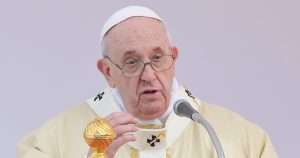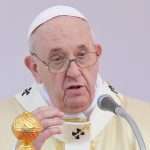Pope Francis has incited a wave of criticism with his remarks suggesting Ukraine should show the “courage of the white flag” and seek negotiations to end the conflict with Russia. His comments were met with strong responses from Ukrainian officials and European leaders, emphasizing the importance of standing firm against aggression rather than capitulating.

Ukraine’s Foreign Minister Dmytro Kuleba swiftly responded, emphasizing the national pride and resilience symbolized by Ukraine’s yellow and blue flag, rejecting the notion of surrender or capitulation. Similarly, leaders from the Ukrainian Greek Catholic Church and European nations voiced their objections, underscoring the need to resist and counteract evil rather than negotiating from a position that could be perceived as weakness.
The Vatican later clarified the Pope’s remarks, indicating that his reference to the white flag was meant to symbolize a call for a ceasefire and peaceful resolution, not surrender. Despite this clarification, the comments have continued to resonate and stir debate about the appropriate course of action in the face of aggression and the role of international diplomacy in seeking to resolve the conflict.
Pope Francis’ comments highlight the complex interplay between moral guidance, international diplomacy, and the realities of conflict, sparking a broader discussion on the principles and pragmatics of negotiating peace and the values that guide such decisions in times of war.
(Associated Medias) – All rights reserved.

